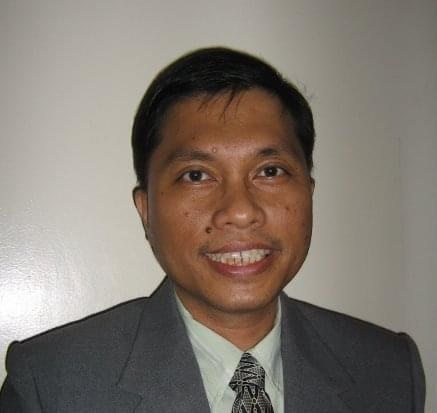OBLIQUE OBSERVATIONS
By Atty. Gilberto Lauengco, J.D.
Both sides now
Share
Dialectical thinking refers to the ability to view issues from multiple perspectives and to arrive at the most economical and reasonable reconciliation of seemingly contradictory information and postures.
One of my favorite songs is “Both Sides Now” by Joni Mitchel. One of its famous lines is “I’ve looked at clouds from both sides now…” One of my favorite jokes is the one about communism and money.
It goes something like this. Joseph Stalin (one-time leader of the old Soviet Russia) was having a meeting with his top ministers when a debate broke out. Some of the ministers insisted that a Communist society must still have money. Others claimed this was revisionism and that a true Communist society would have no need for money.
Finally, they turned to their Stalin, who had thus far remained silent, and asked him to settle the matter. Stalin smiled and said, "Comrades, you are not thinking about this dialectically. There both will and will not be money.”
"But, what do you mean by this?" they asked. He responded, "Well you see, we will have the money, and the others will have none."
I remembered the song and joke when a couple of my friends recently asked me (in a very exasperated manner) why I do not share their opinions on several matters that have actually been dividing our countrymen lately.
They have also noticed that my writings as of late seem to lack the critical bite that they want to see. I told them that I have always been contrarian in my views. I have always liked looking at both sides of an issue and forming my own opinion different from the popular ones.
As a lawyer, I believe one must be able to argue vehemently on both sides of a question. In addition, lawyers are now encouraged to promote conciliation. This would require an ability to look at both sides and look for compromises and solutions. There are times when emotions inflict on me confirmation bias on some issues which is an instinctive inclination to choose a side that makes us feel comfortable or that which aligns with our present viewpoint.
Unfortunately, confirmation bias leads to biased decision-making. Experience tells us that biased decision-making rarely ends well. I respectfully submit that there are times when it does not have to be an “either/or” but a “both / and”.
Sometimes it is not a “with me” or “against me” proposition. Perhaps, there are times the answer lies in a middle point or a point outside the plane of discussion. Perhaps, there are times we should apply aspects of dialectic thought in some of the issues we discuss to arrive at a solution.
Dialectics teaches us that there are always other ways to see a situation and always more than one way to solve a problem. It also teaches us that two things that seem like opposites can both be true. For example, you can be doing your best AND you need to do better. A combination of acceptance and change.
Let us take for example the controversy over the Sierra Madre Kaliwa Dam project. After the recent typhoon, the popular opinion now is that we must protect the Sierra Madre at all costs and stop all projects within the area which would include the aforesaid Kaliwa Dam endeavor. If we listen to staunch environmentalists, the project is patently evil as it will allegedly destroy Sierra Madre and its ability to protect us from typhoons.
They also cite the source of funding may produce more problems than it is worth, which may be true. There is, however, another point of view in that there will be in a near future a water shortage in Metro Manila.
Kaliwa Dam seeks to deal with this looming crisis of water. The proponents also state that damage will be mitigated. We must admit that both sides have legitimate concerns. Is there a possible compromise or solution? Is there a middle ground? If it is, the source of funding may be something that can be addressed? It is clear though, that one cannot just disregard one side.
I must stress that there is nothing wrong in taking sides consistent with one’s convictions. There is nothing wrong with airing one’s views as vehemently as possible. Unfortunately, when you shout too loud or insult the policy or decision makers, sometimes, the chances of reversing or really modifying their views may grow smaller.
At the very least, an opposition approach alone may not bring the desired outcome. As Asians losing face is a large factor in decision-making. To quiet opposition, the standard response would sometimes be a variation of: “We understand the problem. That’s a very good question. We will study the matter. We will get back to you.”
Thereafter, the decision or the situation may remain unchanged. I submit that discussion and whispering can sometimes produce change (incremental though it may be) more than the loudest voice of opposition.
Again, dialectics does not offer a “magic bullet”. It is a proposed alternative way of looking at things. In the end, the proper solution may be something else. If anything my faith teaches me that we do not and cannot know all. Joni Mitchel’s song aptly sums it up. “I really don’t know life at all.”
This is my oblique observation.
Editor’s note: The opinions expressed in the foregoing article are solely the author’s and do not reflect the opinions and beliefs of the Philippine News Agency (PNA) or any other office under the Office of the Press Secretary.
Comments
About the Columnist

ATTY. GILBERTO LAUENGCO, J.D. is a lawyer, educator, political strategist, government consultant, Lego enthusiast, and the director of CAER Think Tank. He is a Former Vice Chairman of MECO, Special Assistant of NFA and City Administrator among others. His broad experience has molded his unique approach to issues analysis which he calls the oblique observation.
